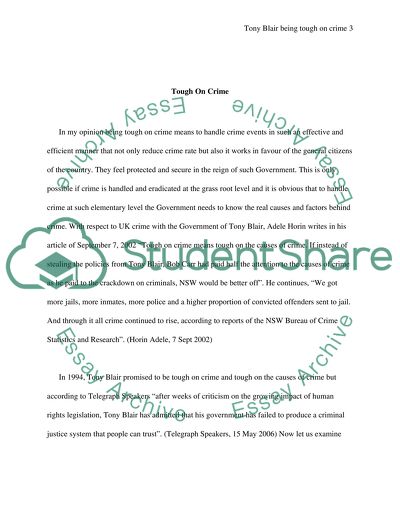Cite this document
(“Tony Blair and Crime Preventation Essay Example | Topics and Well Written Essays - 2250 words”, n.d.)
Retrieved from https://studentshare.org/politics/1519778-tony-blair-and-crime-preventation
Retrieved from https://studentshare.org/politics/1519778-tony-blair-and-crime-preventation
(Tony Blair and Crime Preventation Essay Example | Topics and Well Written Essays - 2250 Words)
https://studentshare.org/politics/1519778-tony-blair-and-crime-preventation.
https://studentshare.org/politics/1519778-tony-blair-and-crime-preventation.
“Tony Blair and Crime Preventation Essay Example | Topics and Well Written Essays - 2250 Words”, n.d. https://studentshare.org/politics/1519778-tony-blair-and-crime-preventation.


